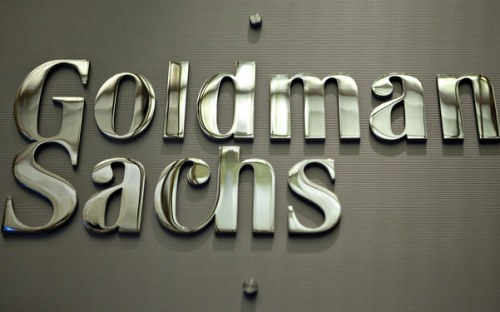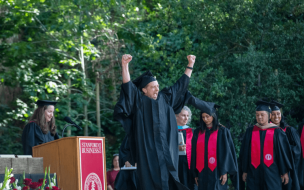Jacob Gray, senior director of the Wharton Social Impact Initiative, says Wharton students are gaining experience with the “next big thing in finance”.
At Pennsylvania’s Wharton School, the student-led Social Venture Fund typically invests $50,000 in companies with growth potential and measurable social impact.
Its portfolio includes a $500,000 injection into RevolutionCredit, which aims to expand financial inclusion, and a $50,000 investment in Raise, which provides micro-scholarships to high school students.
Impact investing has grown in popularity among large financial firms such as BlackRock, as investors increasingly seek to provide a tangible social benefits as well as a financial return.
“Impact investing is still an emerging and evolving field,” says Erin Worsham, director of social entrepreneurship at Duke’s Fuqua School of Business. “[But] we have seen the demand from students increase significantly,” she says.
The trend of venture capital vehicles at business schools is long established, but the sprouting of new funds at a handful of top schools represents a shift.
New York’s Columbia Business School is the latest example of an elite institution setting up a student-led venture fund. Each year, five new $50,000 investments will be added to the recently-launched Student Value Investment Fund. After five years, investments will be liquidated to provide funding for the next batch of entrepreneurs.
“I want the 5x5x5 portfolio to succeed and underscore the message that long-term investing is actually a worthy and profitable pursuit,” says Thomas Russo, at investment firm Gardner Russo & Gardner, who has financed Columbia's fund.
The initiative focuses on financial return. But for many top schools it is positive social impact that drives their investment portfolios.
“The reason we are here is because banks wouldn’t do this — because it doesn’t necessarily make the most financial sense,” says Casey Rhode, CEO of Emory Impact Investing Group and student at Goizueta Business School. “Someone needs to fill that gap,” he says.
The fund has so far made one investment in Krumbz Bakery, a bakery in Atlanta.
Other student-led impact funds are more established. The Social Venture Fund at Michigan’s Ross School of Business invests between $50,000 and $250,000 in start-ups that place social and environmental impact at the heart of their business models. Its portfolio includes Mytonomy, a video-based social network that connects alumni with high school students, which raised $700,000 in total.
The pace of launch of impact investing groups at top business schools has quickened.
Last year for example, UNC Kenan-Flagler Business School announced it had raised $250,000 to launch a public equity fund, which is dedicated to social impact.
“A large percentage of students are interested in social investing,” Carol Hee, director of UNC’s Center for Sustainable Enterprise, told BusinessBecause.
The fund, when eventually launched, will look into the financial case of investing in socially responsible companies. “It’s not easy to do,” says Carol. “But the balance of the evidence is shifting.”
The Haas Socially Responsible Investment fund is a case in point. Led by students, pictured below, who want to deliver financial returns and make a positive social impact, it has achieved a more than 50% return on investment over six years, it claims.
The fund has holdings in American Water, the NYSE listed utility, and AMN Healthcare, the US healthcare group, which has a market cap of about $1 billion.
The flourishing of impact investing groups highlights the increasing interest among MBAs in the venture capital industry.
“Last summer there were a record number of our MBAs working in venture capital,” says Tom Sabel, associate director for careers at Stanford Graduate School of Business.
Jason Heltzer, assistant professor of entrepreneurship at Chicago’s Booth School of Business, says the potential wealth creation lures MBAs to venture capital firms. But, he adds, “it takes a really long time for ownership in a VC fund to produce returns — and those returns are far from a sure thing”.
The funds’ launches also come as MBA students place higher value on careers that provide a positive impact on society, rather than just financial gain.
“We do have a lot of students interested in finding a way to use their MBA and entrepreneurial skills to solve problems in the world,” says Jeff Reid, director of the Entrepreneurship Initiative at Georgetown’s McDonough School.
Ignasi Carreras, director of the Institute for Social Innovation at ESADE Business School, agrees: “There is much more interest in social companies and social enterprise.”
Career opportunities in this area are growing, too. “There are opportunities for MBAs who want to make a positive impact on society everywhere,” says Daniela Papi-Thornton, from the Skoll Centre for Social Entrepreneurship at Oxford University’s Saïd Business School.
RECAPTHA :
e9
6a
1d
36










